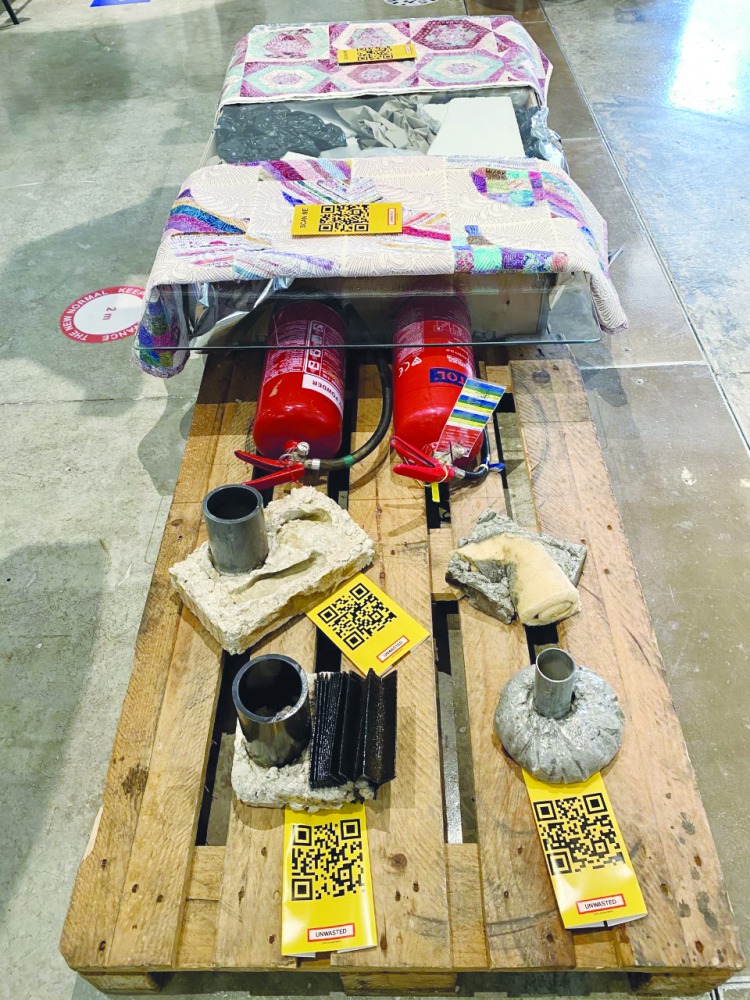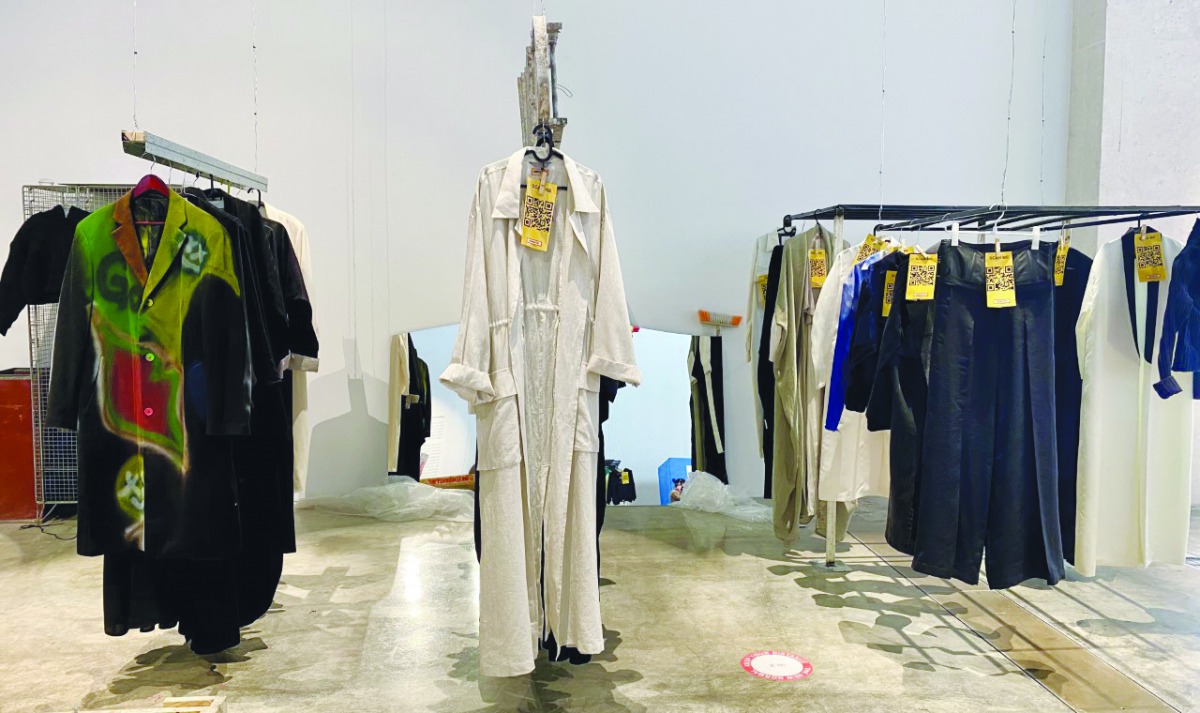
Pictures: Raynald C Rivera / The Peninsula
Doha: Think about this: 7,000 liters of water, which an average person drinks in over six years, is needed to produce one pair of jeans.
The world consumes about 80 billion new pieces of clothing every year, which is 400 percent more 20 years ago.
To make the situation worse, textile production is considered a major source of greenhouse gas emissions globally amounting to 1.2 billion tonnes of CO2 annually, which is more than the carbon footprint of international flights and shipping combined.
Altogether, these pose a gargantuan challenge to the world faced with environmental crises of climate change, air pollution and waste management, among others.
As the average person keeps clothes for half as long as they did at the turn of the century and with just less than 20 percent of discarded garments being reused or recycled, majority of these garments end up in landfills. It is estimated that every second, the equivalent of a garbage truck full of textiles is land filled, making textile waste management a top environmental concern in the world.
Waste management particularly when it comes to the fashion industry is a major obstacle confronting every country in the world including Qatar.
In response to this, a group of like-minded environmentally conscious individuals in Qatar has pioneered a fresh environmental initiative embodied in an event simply dubbed “Unwasted.” With its unique concept, interesting features and relevant cause, the three-week long event recently launched at M7 at Msheireb Downtown Doha demands attention and requires utmost support from everyone.

The “Unwasted” team comprising Aldana Al Mesnad, event curator, art director and host; Jawaher Al Ahmed, event manager and host; Reem Al Sehlawi, waste-led design and environmental advisory; and Sara Al Mesnad, content editor and operations lead; put their energy into organising this event with more awareness-raising activities expected in the future.
Speaking to local media at the event launch, Sara Al Mesnad stressed “Unwasted” was born as a local response to global environmental crisis which many people take for granted. The goal, she said, is to promote awareness and spark conversation on this urgent issue.
As a major element of the project, more than 20 local designers, which according to Al Mesnad “have been working really hard to transform traditional manufacturing production processes and design to a new way of thinking where we want to eliminate waste completely.”
The problem on textile waste does not only lie on the discarded old clothing in landfills but begins from the offset of the production cycle, before the garments even make it to the retailer. The designers involved in the initiative have up-cycled offcuts, dead stock, vintage garments, overstock, product samples or fabric swatches.
Al Mesnad noted that the designers did not only eliminate waste but also used waste from previous collections to recreate everything sold in the retail area.
“The designers have completely transformed their process and their method of working with not only sustainable fabrics but also eco production making sure they don’t create more waste in what they have created here. So everything they have created here is using old wastes without generating new waste,” she said.
“Unwasted” also has an F&B offering, and for this, the organizers have worked with local cafes “to ask them to rethink their packaging to make sure it is biodegradable, to start considering composting, to make sure that any water waste is not gone away,” she explained.
Since raising awareness is a main aim of the initiative, a major component of the project is a series of workshops and film screenings which are held in partnership with a number of institutions such as Qatar Foundation with its Qatar Reads campaign and Doha Film Institute.
As visual art is a potent tool to convey an important message, the event contains this element in the form of an installation which depicts a massive quantity of discarded clothing and textile shaped like a collection of landfills. The exhibition, Al Mesnad said, is an artistic interpretation of the problem of waste meant to shock the viewer and create a reaction.

Everything used at the venue including furniture have been reused and recycled.
“We repurposed all the materials to make sure we don’t purchase anything new for this event. That is one of our biggest successes - to make sure we do a lot with what we have,” she said, adding the goal was to prolong the lifecycle of everything.
“Unwasted” is the first event in Doha to have received eco event level 2 award from Qatar Green Building Council, and the goal is to reach level 3 at the end of the event, said Al Mesnad. The award, which has three levels, “recognises initiatives that support environmentally considerable, conscious thinking,” she added.
As global population reaches more than eight billion in the coming decade, the fashion industry is projected to further expand to meet the growing demand, and if the production methods, demographic and consumption patterns continue, global apparel consumption is projected to increase by 63 percent to 102 million tonnes by 2030.
Al Mesnad explained the initiative is not the end or a solution, but a start of the journey to mitigate the problem, ensuring a step is taken in the right direction and inspiring the kind of change and the kind of reward that comes with that change to see that progress can be made.
“What we want to do is create more pop-ups and more events to make sure we address the problem across different industries,” she said.




